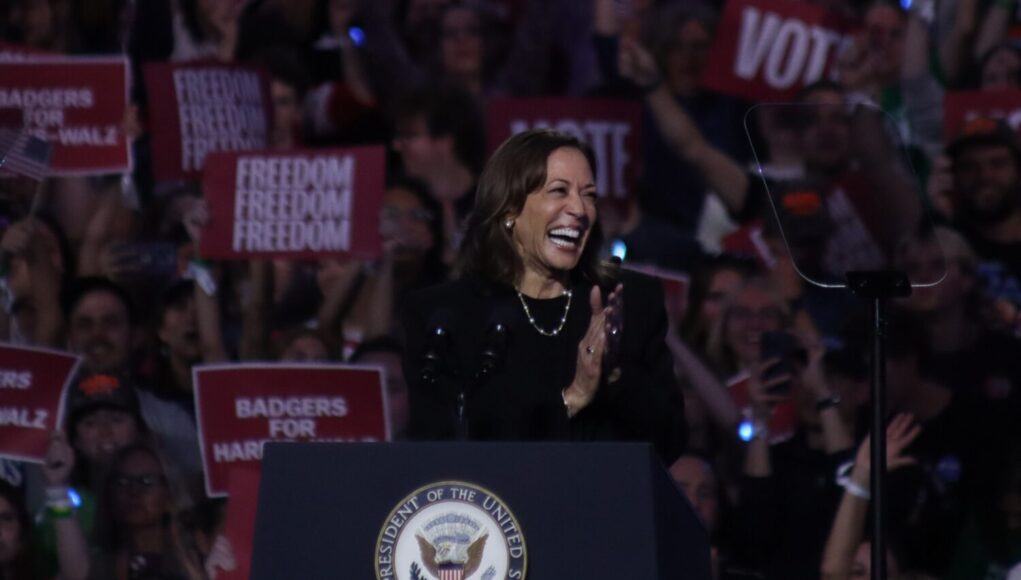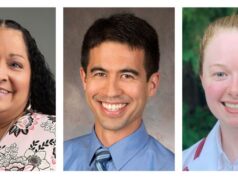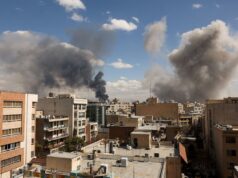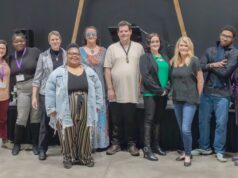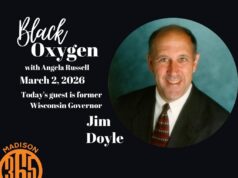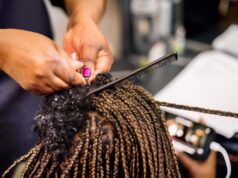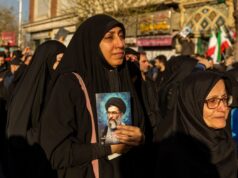For us, hope was the most powerful force in the universe. More powerful than superheroes and even super villains. More powerful than any branch of the government. More powerful than any natural disaster.
More powerful than double dares, Double Dutch, and Double Bubble bubble gum. More powerful than the boom clack from the boom boxes turned up to ten on the sidewalk, Members’ Only Jackets, more powerful than shell-top Adidas.
Hope. It turned agonizing moments spent watching the school feed scroll like forever across the bottom of a living room television, into snow days. It turned prayers of “rain, rain go away. Come back another day,” murmured like a spiritual, into vibrant and sunny pick-up football games.
Hope kept families together, the neighborhood safe, even after the street lights came on.
It was so powerful for us; it had the ability to completely change and transform the trajectory of our small universe. Hope.
Back then, we didn’t actually know it was hope or call it hope. But, that’s exactly what it was. We called it “wishes” and “dreams.” We called it desire and aim. We called it want. And, there were always limits to how much want I could have back then.
I think I learned that lesson when I was about 14. I was spending a Friday night at my cousin Jeff’s house, and we had a planned meet-up in his apartment’s parking lot with two girls. It was a big deal to us.
Not “big deal” like a coming of age story where five strangers experience an epiphany in the library of a high school, big. And It certainly didn’t have all of the poetic undertones and classically-trained writers that accompany a rite of passage for the teenage protagonist of a sitcom, but it was big to us.
We weren’t just talking to girls in that parking lot that evening, we were nation-building. Debating. Discussing. Dialoguing. Throwing our hopes against the evening moon, certain they would serve as a filtered candle that would light a path where ancestors would find us, and future generations could use as walk-up music.
Does it really “take two to make things alright?” Are there any wars colder than the one we are in right now? What happens the day after a nuclear attack? Is there any such thing as ‘safe sex’? How is crack getting into our community?
We politicked until even our pregnant pauses and awkward silences felt poetic, poignant, and thick. Hope wasn’t just in the air, or some other cliche for hope. Hope resided with us for a spell.
And then he came, materialized into the parking lot from the silhouettes of the darkness of the night sky, with a dark uniform and dark intentions.
“Get your goddamn hands up!” He yelled at me and Jeffery, a service revolver pointed at my head. We reached for the air above our heads like it would hold us up, stabilize us.
“There was a report of you all breaking into cars,” he said as eyes peered from around the corner of a second-story apartment window pane.
He didn’t give us a chance to deny or explain. He simply kept one hand on the gun and patted us down with the other. I was too afraid, ashamed and humiliated to even look at or imagine the girls we were with were thinking.
“I could kill you and nobody would care.”
He thrust his hand in both pockets of my yellow Bermuda shorts, pulled out the hope I had stored there, and left as quickly as he came.
We sat in complete silence for a good while—long enough for it to move from somber, to awkward, to eerie, to just plain quiet.
“Have you heard Rakim yet?” Jeffrey asked, attempting to fill the quiet space. And in that way, we talked about the miracle of hip hop and Rakim until it was time to go inside. We never mentioned the officer again and what happened ever again.
In fact, I have never uttered or written a word about it until now. Not because the unpacked trauma that still exists is too much to discuss. But, rather, because this country is only okay with an examination of racism that acknowledges that it exists in the existential or abstract, and that it is a problem that has been solved with the help of Anglo people.
I can’t count the number of times I have listened to outraged and well-meaning progressives of European descent wax self-righteous about the virulent racism that exists all the way over in Europe.
They take a pensive aim at the lasting effects of the Apartheid in South Africa. And they are even disgusted by the racism that existed decades and centuries ago in this country, without acknowledging that racism still exists, with their acquiescence and help.
Without acknowledging all the George Floyds, the economic disparities, the criminal justice and educational disparities, the legislation drafted right in this season directed toward Black, brown and queer people.
In a culture that values face-saving and good personhood above absolutely every single thing, it is almost always easier not to have discussions about race, generally, or about this, specifically, in the open.
That, however, was the last time I remember having hope or being hopeful about matters outside of my circle of influence, like we had that evening. I have certainly had moments and seasons where I have been hopeful. My wedding. My children. My family. Hearing the crackle of a John Coltrane LP on a record player. Listening to young Black jazz musicians. But, nothing like being in that parking lot discussing the present and the future.
Until Kamala. Yes. Kamala.
In 2009, I heard and read about this district attorney of San Francisco, who was running to be the attorney general of California. She was not only running a very thoughtful campaign, but her name was on the lips of everyone from Gwen Ifill to Barack Obama.
She was brilliant, visionary, and measured. She was both a leader and a manager. She treated the people who worked with and for her with respect and compassion.
She had already created criminal justice programs in her office aimed at compassion and rehabilitation, which have been so effective, they have become national templates for criminal justice reform. She was a friend to the poor, the queer, the righteous, and the oppressed.
And, above all of that, there was an aura of sacredness around her work. Not sacred like like anti-everything politicians believe the legislation they create to restrict reproductive justice or Black voices, or queer voices, believes their work is sacred when actually just repackaged hate.
I mean sacred. Sacred like children laughing. Sacred like motherhood and rainy Saturday mornings. Sacred like she was called to do the work of the people, and she was, in fact, called by the Creator to do even higher and greater work through this Black woman.
So, I kept my eyes on this brilliant Black woman from California. Never falling away, never faltering or wavering in my support for her, never entertaining the critics and detractors, but always writing and speaking a word on her behalf. So much so, that my spouse rolled her eyes more than once at my loyalty to this woman.
I did not see it as a thing. For me, she represented Black womanhood. Watching her ascend gave me hope.
And when the path was made clear for her to run for president, when she raised $1 billion, when she garnered notable endorsements and had packed stadiums of diverse people waiting to hear from her, when she handled herself gloriously in interviews and the debate, when she presented a cogent and common sense plan for the country’s future, I was hopeful.
I was hopeful that this country was ready to embrace the brilliance of Kamala Harris, the brilliance of Black women. I was hopeful that we were ready to turn the page on hateful rhetoric, even more hateful actions, and virtue signaling, so that we could be governed by a president and a woman who was emotionally and intellectually equipped for the work.
But, that didn’t happen. Not enough women, not enough women of European descent, not enough people were convinced and hopeful with me.
But, through it all was hope, unwavering next to me, surrounding, atmospheric, an unwavering spark, of perseverance, reverence, of energy. Vice President Harris is hope personified. How rarely do we get a chance to do over, do for the first time, the right thing, as it should be, as it would be.
And while things didn’t go as I wanted them to go, I am grateful for the hope she gave me. And I am hopeful that we as a country will get it right.
One day.

